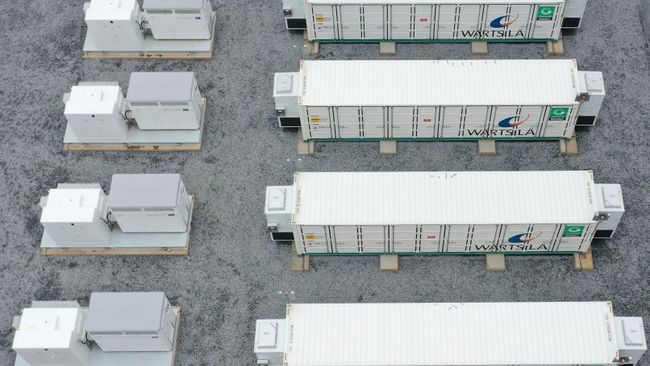Duke Energy Florida says it plans to add three battery energy storage sites to enhance power quality, reliability and critical services during outages.
They will be located at Duke Energy’s Lake Placid Solar Power Plant in Highlands County, John Hopkins Middle School in Pinellas County, and southwest of Gainesville in Alachua County. The sites will play an important role in supporting public safety during significant weather events, as well as addressing overall electric grid efficiency and reliability.
“Batteries are an exciting technology that allows us to bring more renewables onto the grid and support resiliency in our communities,” says Catherine Stempien, state president of Duke Energy Florida. “These projects help us determine the best uses so that when battery storage technology becomes even more cost-competitive, as it is projected to do, we can deploy them quickly for the benefit of our customers.”
The versatility of battery storage technology allows Duke Energy, as the grid manager and operator, to maximize benefits to customers and the grid.
An 18 MW lithium battery site will be built at the company’s 45 MW Lake Placid Solar Power Plant, which came online in December 2019. The addition of battery energy storage will be the first of its kind for Duke Energy Florida. It will allow solar energy to be dispatchable for Duke Energy Florida grid operators and improve overall plant efficiency.
An 8.25 MW lithium battery site will be located 15 miles southwest of Gainesville in Alachua County. The battery storage site provides a cost-effective solution for focused power quality and reliability for the town of Micanopy and nearby neighbors.
A 3.5 MW solar+storage microgrid site will be added at Pinellas County’s John Hopkins Middle School. The microgrid will support grid operations and provide backup electric power to the school when it must operate as a special need’s hurricane evacuation shelter. The microgrid consists of a 1 MW solar parking canopy array and a 2.5 MW battery and controls, which will store and deploy clean, renewable energy to the school and grid. The project enhances electric service and grid operations for customers.
Duke Energy Florida’s continued investment in battery energy storage reflects the company’s belief that energy storage plays a significant and evolving role in how energy is delivered to customers now and in the future. Through energy storage and microgrids, the utility can enable the integration of more renewables onto the grid and help improve reliability and security while keeping costs affordable for customers.
The battery sites will serve customer electric needs, increase energy security and complement other electric resources on the grid. All three sites are on track to be completed by the end of 2021. Along with three other battery storage installations announced last year in Gulf, Columbia and Gilchrist counties, these sites will fulfill Duke Energy Florida’s pledge to customers to add 50 MW of battery storage by 2022.
Photo: A North Carolina battery energy storage site




